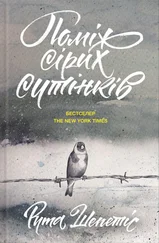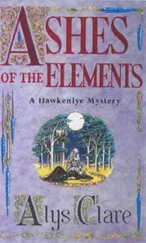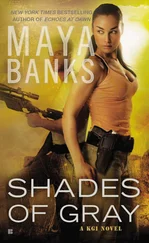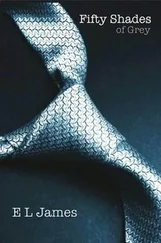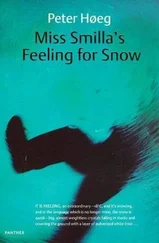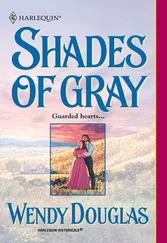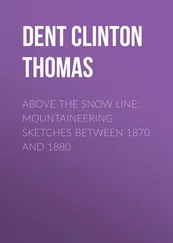I eyed the can of tomatoes. Juice spilled off of Andrius’s knife and onto his fingers. “Where did you get them?” I asked.
He looked at me, disgusted. “I got them at the corner market. Haven’t you been there?” He stared, then turned away. “Where do you think I got them? I stole them.” He heaped the last of the tomatoes into my brother’s mouth. Jonas drank the juice from the can. Andrius wiped the blade and juice from his fingers on his trousers. I felt my body surge forward toward the juice.
Mother arrived with one of the Siberian shoemakers. Snow was piled atop their heads and shoulders. The woman ran to my brother, speaking quickly in Russian.
“I tried to explain what was wrong,” said Mother, “but she insisted on seeing for herself.”
“Andrius brought a can of tomatoes. He fed them to Jonas,” I said.
“Tomatoes?” gasped Mother. “Oh, thank you! Thank you, dear, and please thank your mother for me.”
The Siberian woman began speaking to Mother.
“There’s a tea she thinks will heal him,” translated Andrius. “She’s asking your mother to help her collect the ingredients.” I nodded.
“Andrius, could you stay a bit longer?” asked Mother. “I know Jonas would feel so much better with you here. Lina, boil some water for the tea.” Mother leaned over my brother. “Jonas, I’ll be right back, darling. I’m going for a tea that will help you.”
WE SAT IN SILENCE. Andrius stared at my brother, his fists clenched. What was he thinking? Was he mad that Jonas was sick? Was he mad that his mother was sleeping with the NKVD? Was he mad that his father was dead? Maybe he was just mad at me.
“Andrius.”
He didn’t look at me.
“Andrius, I’m a complete idiot.”
He turned his head.
“You’re so good to us, and I’m… I’m just an idiot.” I looked down.
He said nothing.
“I jumped to a conclusion. I was stupid. I’m sorry I accused you of spying. I’ve felt horrible.” He remained silent. “Andrius?”
“Okay, you’re sorry,” he said. He looked back to my brother.
“And… I’m sorry about your mother!” I blurted.
I grabbed my writing tablet. I sat down to finish the drawing of Jonas’s room. At first, I was conscious of the silence. It hung heavy, awkward. As I continued to sketch, I slipped into my drawing. I became absorbed with capturing the folds of the blanket perfectly, softly. The desk and the books had to be just right. Jonas loved his desk and his books. I loved books. How I missed my books.
~
I held my schoolbag, protecting the books. I couldn’t let it slap and bang in the usual way. After all, Edvard Munch was in my bag. I had waited nearly two months for my teacher to receive the books. They had finally arrived, from Oslo.
I knew my parents wouldn’t appreciate Munch or his style. Some called it “degenerate art.” But as soon as I saw photos of Anxiety, Despair, and The Scream, I had to see more. His works wrenched and distorted, as if painted through neurosis. I was fascinated.
I opened our front door. I saw the solitary envelope and raced toward the foyer table. I tore it open.
Dear Lina,
Happy New Year. I’m sorry I haven’t written. Now that the Christmas holiday is passed, life seems on a more serious course. Mother and Father have been arguing. Father is constantly ill-tempered and rarely sleeps. He paces the house through all hours of the night and comes home at lunchtime to get the mail. He’s boxed up most of his books, saying they take up too much space. He even tried to box up some of my medical books. Has he gone mad? Things have changed since the annexation.
Lina, please draw a picture of the cottage in Nida for me. The warm and sunny memories of the summer will help push me through the cold to spring.
Please send me your news and let me know where your thoughts and drawings take you these days.
Your loving cousin, Joana
~
“He told me about his airplane,” said Andrius, pointing over my shoulder to the drawing. I had forgotten he was there.
I nodded. “He loves them.”
“Can I see?”
“Sure,” I said, handing him my tablet.
“It’s good,” said Andrius. His thumb was pressed against the edge of the tablet. “Can I look at the others?”
“Yes,” I said, thankful there were only a few sketches I hadn’t yet torn from the pad.
Andrius turned the page. I took the compress from Jonas’s head and went to cool it in the snow. When I returned, Andrius was looking at a picture I had drawn of him. It was from the day Mrs. Rimas received the letter.
“It’s a strange angle,” he said, laughing quietly.
I sat down. “You’re taller than me. That’s how I saw it. And we were all packed pretty tight.”
“So, you had a good angle of my nostrils,” he said.
“Well, I was looking up at you. This angle would be different,” I said, observing him.
He turned to me.
“See, you look different from this perspective,” I said.
“Better or worse?” he asked.
Mother and the Siberian woman returned.
“Thank you, Andrius,” said Mother.
He nodded. He leaned over and whispered something to Jonas. He left.
We steeped the leaves in the water I had boiled. Jonas drank it. Mother stayed propped at his side. I lay down but couldn’t sleep. Each time I closed my eyes, I saw the painting of The Scream in my head, but the face was my face.
IT TOOK TWO WEEKS for Jonas to improve. His legs trembled when he walked. His voice was barely more than a whisper. In the meantime, Mother and I became weaker. We had to split our two bread rations to feed Jonas. At first, when we asked, people contributed a portion of what they had. But as the cold crept deeper into our shacks, it began to chill generosity. One day, I saw Miss Grybas turn her back and shove her entire bread ration into her mouth the moment it was handed to her. I couldn’t blame her. I had often thought of doing the same thing. Mother and I didn’t ask for contributions after that.
Despite our pleadings, the NKVD refused to give us food for Jonas. Mother even tried speaking to the commander. He laughed at her. He said something that upset her for days. We had nothing left to sell. We had bartered practically everything we owned with the Altaians for warm clothing. The lining of Mother’s coat hung thin, like fluttering cheesecloth.
The approach of Christmas bolstered spirits. We gathered in each other’s shacks to reminisce about the holidays in Lithuania. We talked endlessly about Kucios , our Christmas Eve celebration. It was decided that Kucios would be held in the bald man’s shack. He grudgingly agreed.
We closed our eyes when listening to the descriptions of the twelve delicious dishes representing the twelve apostles. People rocked back and forth, nodding. Mother talked of the delicious poppy seed soup and cranberry pudding. Mrs. Rimas cried at the mention of the wafer and the traditional Christmas blessing, “God grant that we are all together again next year.”
The guards warmed themselves with drink after work. They often forgot to check on us or didn’t want to venture out into the biting, frosty winds. We gathered each night to hear about someone’s holiday celebration. We grew to know each other through our longings and cherished memories. Mother insisted that we invite the grouchy woman to our meetings. She said that just because she had signed didn’t mean she wasn’t homesick. Snow fell and the temperatures plummeted, but work and the cold felt tolerable. We had something to look forward to—a small ritual that brought relief to our gray days and dark nights.
Читать дальше
![Рута Шепетис Ashes in the Snow [aka Between Shades of Gray] обложка книги](/books/414915/ruta-shepetis-ashes-in-the-snow-aka-between-shades-cover.webp)
